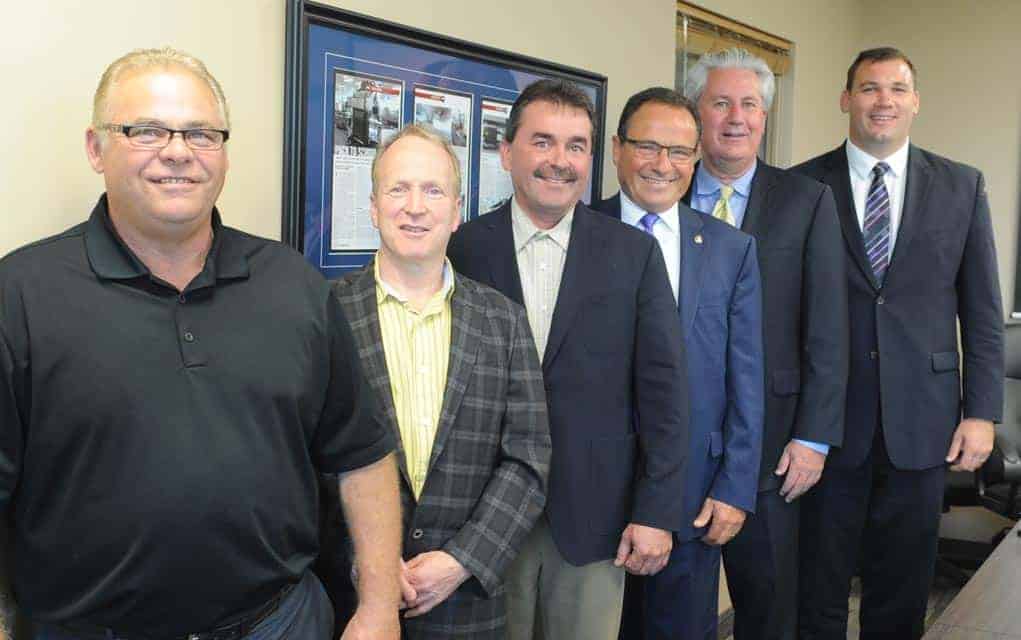Boosting Waterloo Region’s manufacturing sector was the focus of a roundtable discussion in Elmira Tuesday afternoon. Hosted by Kitchener-Conestoga MP Harold Albrecht, the event was held at the Tri-Mach Group offices.
Albrecht was joined by Barrie-Springwater-Oro-Medonte MP Alex Nuttall – the federal opposition critic for economic development for southern Ontario – members of the Cambridge and Greater Kitchener Waterloo chambers of commerce, and other stakeholders to discuss the future of manufacturing in the region.
Tri-Mach Group makes food, liquid and personal health care equipment for various industries.
The round table was designed to get input on the future of manufacturing in Ontario from those that are on the ground level, running manufacturing operations. Albrecht says it was a productive discussion.
“We got some great ideas from people who are in the manufacturing sector, and they shared ideas about how government can help, or at least stay our of the way in terms of being obstacle to businesses and to figure out to expand and create jobs,” he said after the discussion concluded. “Now, we have to give the current government constructive critiques on how we can do this.”
Nuttall will be putting together a report, compiling what he heard at the round table. He says the manufacturing sector is struggling.
“We are looking at the process right now and it is leaving manufacturers behind. We want to make sure that we are taking them into consideration as we come up with different policies, specifically those that increase the cost of doing business and are taking jobs out of Ontario,” he said.
One of the main issues discussed surrounded how there was more automation involved in manufacturing processes, and what that could mean for job creation and retention.
“One in five jobs in the region depend on manufacturing. The issue is around skilled trades and having skilled employees,” said Art Sinclair of the Greater Kitchener Waterloo Chamber of Commerce. “We are seeing the transition to automated, or advance manufacturing which is actually robotics manufacturing products as opposed to the human on the assembly line. Still, though, in robots, right there is a skill set for people that have to take the training to operate the machines that are used in manufacturing across the region.”
Nuttall wants everyone’s opinion to be taken into consideration when moving forward with policies that affect manufacturers.
“We can’t wait to work with businesses to make sure their ideas get forwarded to committee, to make sure there are enough skilled trades out there, and how to ensure that there is the right employment available,” he said.









